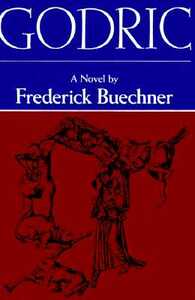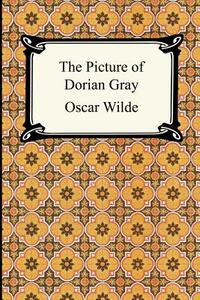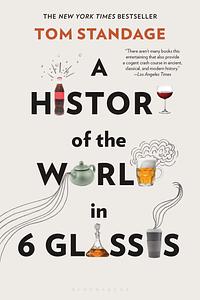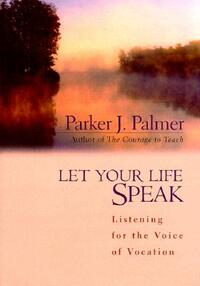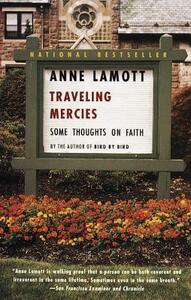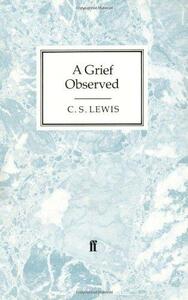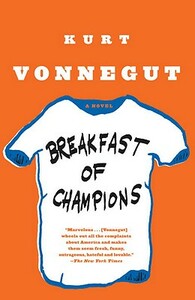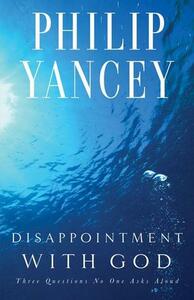Take a photo of a barcode or cover
jonscott9's Reviews (211)
This is the fictionalization of the life of Godric, a pirate and thief turned saint. Buechner is at his best here in this bawdy, creative account that reaped him a Pulitzer nomination.
Godric is a sympathetic man but not always good. He instructs his scribe to write his story accordingly, to avoid glowing descriptions that would ever win him praise. One can't help but be captivated by the story, though. His (fictional) life and relationships are intriguing and well worth the read.
Injections of Buechner's own family dynamics (especially father-son) are gripping in the early going and again later as certain persons reappear. The prose is eloquent and thoughtful.
Godric is a sympathetic man but not always good. He instructs his scribe to write his story accordingly, to avoid glowing descriptions that would ever win him praise. One can't help but be captivated by the story, though. His (fictional) life and relationships are intriguing and well worth the read.
Injections of Buechner's own family dynamics (especially father-son) are gripping in the early going and again later as certain persons reappear. The prose is eloquent and thoughtful.
This book comprises a believable tragedy of errors. A dialogue lover's dream, Dorian Gray is packed with Uzi-style exchanges between English debutantes of the late 1800s. The Wilde Thing's style is crisp and upbeat, just as fresh 115 years later as it was in the days when he penned it.
This is the ultimate read for studying human self-absorption, depravity and the lengths that one will go to save one's reputation or, perhaps better put, to simply save one's face. Witness what a difference one chance encounter, one wee conversation in a wee garden, has on the impressionable, fresh-faced Dorian Gray when he encounters Lord Henry Wotton, a crony of Basil Hallward, the painter whose most inspired, best work is a detailed portrait of Dorian, his friend who serves as the muse for his art.
This book begs the question, What is more important: beauty or goodness? What wonders and horrors await the youth (and the reader) when a whimsical prayer for eternal youth becomes the curse that may eat him in the end. This book is a brilliant study in the glaring differences between the pleasures that one seeks and the treasures that one needs. It is rich in language and scope, abounding in supernatural intrigue, and ripe with the verbal volleying among three striking characters--Dorian Gray, Lord Henry and Basil Hallward. Dorian Gray is simply a delight of an observation, if an intensely cruel one.
The embattled author was near-perfect with this book. It really just has to be read.
This is the ultimate read for studying human self-absorption, depravity and the lengths that one will go to save one's reputation or, perhaps better put, to simply save one's face. Witness what a difference one chance encounter, one wee conversation in a wee garden, has on the impressionable, fresh-faced Dorian Gray when he encounters Lord Henry Wotton, a crony of Basil Hallward, the painter whose most inspired, best work is a detailed portrait of Dorian, his friend who serves as the muse for his art.
This book begs the question, What is more important: beauty or goodness? What wonders and horrors await the youth (and the reader) when a whimsical prayer for eternal youth becomes the curse that may eat him in the end. This book is a brilliant study in the glaring differences between the pleasures that one seeks and the treasures that one needs. It is rich in language and scope, abounding in supernatural intrigue, and ripe with the verbal volleying among three striking characters--Dorian Gray, Lord Henry and Basil Hallward. Dorian Gray is simply a delight of an observation, if an intensely cruel one.
The embattled author was near-perfect with this book. It really just has to be read.
6 Glasses zeroes in on six liquids--from beer in ancient Mesopotamia to wine and spirits to coffee and tea and finally to cola and the globalization of brands such as Pepsi and Coca-Cola--and targets each as being responsible (or at least culpable) for the shaping of cultures (quite likely), writing itself (quite possible), and industrialization (believable, especially in light of Coke).
Each of the libations receives its proper dues. The organization of the book itself is very well done, and the anecdotes and histories of each are engaging.
The sad irony about 6 Glasses--and it's a rather important one--is that, for all its talk, the book is remarkably dry. Sure, Standage gets wittier than in the opening section on beer, and notably in the chapters on wine and cola, which seem his obvious liquids of choice, but this reader's reserves were nearly sapped after finishing the pages about beer.
He does a bang-up job with his research and presentation in some parts of this book, frames his passages well, and, honestly, the pictures really do help.
"Quickly, bring me a beaker of wine, so that I may wet my mind and say something clever," Aristophanes reports to us as the section on wine commences. One wishes that Standage had called for just that. Perhaps it would have made for a more intriguing read.
Each of the libations receives its proper dues. The organization of the book itself is very well done, and the anecdotes and histories of each are engaging.
The sad irony about 6 Glasses--and it's a rather important one--is that, for all its talk, the book is remarkably dry. Sure, Standage gets wittier than in the opening section on beer, and notably in the chapters on wine and cola, which seem his obvious liquids of choice, but this reader's reserves were nearly sapped after finishing the pages about beer.
He does a bang-up job with his research and presentation in some parts of this book, frames his passages well, and, honestly, the pictures really do help.
"Quickly, bring me a beaker of wine, so that I may wet my mind and say something clever," Aristophanes reports to us as the section on wine commences. One wishes that Standage had called for just that. Perhaps it would have made for a more intriguing read.
With warmth and wisdom throughout, Palmer describes in a most linear fashion his own triumphs and travails from institutions of many kinds: social, spiritual, and higher education. He is as inclined to quote some calming poetry as he is to lecture on leadership. He taps all the right people for their own thoughts on life and leading (Buechner, Dillard, Rilke, Rumi) and organizes the book's five chapters beneath simple metaphors--the changing of seasons, and those in one's life. He loves an analogy but staves off the hokey stuff.
Some will brand his style of writing and leadership to be simplistic for this less-than-utopic world, but very real strength and endurance seep through Palmer's pages to let the reader know that he's been in some precarious spots and lived to tell the tales. He does so from a professional-cum-personal standpoint that makes him highly readable and refreshing when so many other writers on leadership give us models for self-salvation or "principles" on how to get what we want, in so many words. Palmer is quick--and right--to dismiss this "power of positive thinking" as a waste of time. He doesn't have time for such tricks; he's lived too long and seen too much for that.
So yes, it's an easy little jam of a read, quick and simple. Leave it to the Quaker to pull no punches. He has some great insights about institutions and learning and vocation, as expected from the title, but he doesn't gloss over the dark times of his own life--depression and the like--but rather reveals plainly what these times meant for him and who he is today as a man and leader. He does all of this with a gentle wit and candor that's refreshing and lacking a hint of pretention. A lot of self-fashioned spiritual "leaders," many of whom have never met a stage or a microphone that they didn't like, could stand to learn from this candid prose and elegant man. The same is true for the everyday denizen such as you and me too. Give Palmer's peace a chance.
Some will brand his style of writing and leadership to be simplistic for this less-than-utopic world, but very real strength and endurance seep through Palmer's pages to let the reader know that he's been in some precarious spots and lived to tell the tales. He does so from a professional-cum-personal standpoint that makes him highly readable and refreshing when so many other writers on leadership give us models for self-salvation or "principles" on how to get what we want, in so many words. Palmer is quick--and right--to dismiss this "power of positive thinking" as a waste of time. He doesn't have time for such tricks; he's lived too long and seen too much for that.
So yes, it's an easy little jam of a read, quick and simple. Leave it to the Quaker to pull no punches. He has some great insights about institutions and learning and vocation, as expected from the title, but he doesn't gloss over the dark times of his own life--depression and the like--but rather reveals plainly what these times meant for him and who he is today as a man and leader. He does all of this with a gentle wit and candor that's refreshing and lacking a hint of pretention. A lot of self-fashioned spiritual "leaders," many of whom have never met a stage or a microphone that they didn't like, could stand to learn from this candid prose and elegant man. The same is true for the everyday denizen such as you and me too. Give Palmer's peace a chance.
Lamott's in fine form here for what she does. Reverent and irreverent. Self-deprecating and self-aggrandizing. Hilarious. Heartbreaking. Honest. This book is all of these things.
Mel White has quite the life story: A former ghost writer for the likes of Jerry Falwell and other conservative Christian honchos, he was married with two children and then came out as a gay man when in his 40s. This account starts with his childhood (as it should) and works up from there to his activism in the present. He is a good writer, but unfortunately this memoir sometimes gets bogged down in self-involvement. He really didn't need to delineate all of his relational-sexual exploits for the reader to understand that his marriage was in peril and his mind was a mess. Written in 1993, his info seems dated sometimes, but the personal stories are heartrending. Here's hoping that his story has at least catalyzed conversations among family, friends, and fellow churchgoers across the nation. The subject matter is so often under rug swept.
This spare, searing book was right on time for me. My mother's friend had just succumbed to her cancer battle, and a friend's father died unexpectedly as I was reading it. In these pages, Lewis deals with the grief and pain over the loss of his wife, Joy, to cancer. Candid and remarkably clear are his thoughts on grief, death, an afterlife, and faith. He doesn't pretend to know more than he does, nor does he pretend to have more (or less) belief or strength than he does either.
Lewis filled four notebooks and declared his thinking done as it pertained to grief. Those four notebooks comprise the four chapters of this brief but important book. I'm sure other sensitive, sensible books on grief are out there, but this is the best that I've found.
Lewis filled four notebooks and declared his thinking done as it pertained to grief. Those four notebooks comprise the four chapters of this brief but important book. I'm sure other sensitive, sensible books on grief are out there, but this is the best that I've found.
Vonnegut's thesis seems to be that "Men are machines." (Sure, it's cynical.) I thought this book had its highs and lows, times when I'd tear through it and others when it dragged me behind it.
The failed novelist Kilgore Trout is a great original character, though. And that's another thing -- Vonnegut's ace when it comes to naming memorable characters.
I do relish how he makes light of the inanities of our everyday existence. Example: Why is the lyric to the USA's national anthem peppered with questions?
The failed novelist Kilgore Trout is a great original character, though. And that's another thing -- Vonnegut's ace when it comes to naming memorable characters.
I do relish how he makes light of the inanities of our everyday existence. Example: Why is the lyric to the USA's national anthem peppered with questions?
This is one of those books that helped me want to believe in God at all. Yancey's not highly quotable, which is maybe an overrated attribute anyway, but he's always solid. Of course the concept of grace takes center stage here, and he gives it ample play in disclosing his thoughts and interactions with a range of people. The stories are gripping, especially that in Chapter 6 where he shares of his friendship with Mel White, the former ghost writer for the Christian right turned gay activist. The first story, the borrowed Babette's Feast, is also wonderful. Insights pertaining to grace from Yancey's own life and relationships are peppered in and measured well.
What I admire most about Philip Yancey is that he asks the questions (and publicly) that so many Christians would like to hush up. He's okay with life being untidy. The three queries he poses: Is God unfair? Is he silent? Is he hidden? Yancey's willing to follow these questions all the way down and share what he's found. His prose is clear if not poetic, and that's okay. He just tends to strip things down to basics and build them back up again with a biblical backdrop. He pulls no punches and doesn't wax emotional. This book is no different from his others in that it's rich with knowledge and humility.
